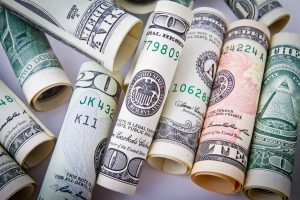How Money Order Can be Your Saviour in Emergency

The Myriad Benefits of Money Orders
You’ve been dreaming of this vacation for a long time. Your bags are packed, the itinerary is set. Then your wife runs up to you in tears. Her purse has been stolen, she says.
Terrible, but not a world-ending disaster. Why? Most of your money was in the form of money orders, and it is a matter of relative ease to call up the provider and cancel them. Convenient and safe, money orders have protected individuals against loss and theft since the U.S. Civil War.
What They Are
A money order can be likened to a prepaid check. It’s essentially a check that can’t bounce, because the money has already been paid. They can be purchased at over 200,000 locations in America, including post offices, Walmart, CVS, and 7-11. They are available at many other groceries, convenience stores, banks, check-cashing stores, and other locations.
Money orders are ideal for situations where it is either impossible or simply not optimal to pay by check, cash, or wire transfer. Moreover, just like checks, money orders are payable to individuals and institutions by name, and require verification and signature in order to be cashed or transferred.
Benefits
Money order has many advantages over checks, as has been noted. They can’t bounce, they’re safer than cash, and they’re usually less expensive than a bank’s certified or cashier’s check. Unfortunately, banks don’t always approve them for mobile deposit. Buying one does require a physical trip to a provider and a purchase fee.
There are many situations in which these advantages render money orders indispensable. In some cases, the person who is being paid won’t be comfortable taking a check, either because they don’t know the payer or because of previous experiences with bounced checks.
In other cases, a sender may be uncomfortable sharing their checking account number or personal address. Sometimes the person paying may not have a checking account, and the sum involved is large or the money must be sent a long way. Or it might simply be vital to make a payment without the possibility of it bouncing due to insufficient funds.
Of course, certified checks and cashier’s checks are potential alternatives to money orders. However, banks typically charge higher fees for these options, and they are only available at banks, during banking hours, and after waiting online. Money orders are easier and less expensive to obtain.
Limits and Fees
As was mentioned, money orders are available in a wide number of locations. However, different locations typically charge different fees for them. Walmart, with its trademark commitment to low prices, typically charges $0.88 for each, while the Post Office charges $1.25 for orders below $500 and $1.70 for those over $500.
Prices vary extensively by location. For example, banks often charge high fees for money orders for nonmembers, while members are charged a nominal free or can purchase money orders for free.
Another factor to bear in mind is that money orders are capped in value at $1000. Depending on the size of the payment, it may be necessary to purchase more than one.
Fraud
Money orders were drawn up by the U.S. Post Office during the Civil War for the express purpose of deterring theft, a major problem at the time. While they have served this function admirably, they remain a favorite tool of fraudsters.
Attentive participants to transactions involving money orders should look for distinctive security and anti-counterfeiting features. These include watermarks, rainbow ink patterns, and security strips. Anyone in doubt about the veracity of a particular order should note the issuer (Post Office, bank, etc.) and research the security features it should have.
Scenarios
Imagine Frank needs to send money to a relative in a remote part of the world. Frank obviously can’t send cash that distance, and wiring money is impossible because his relative doesn’t have a bank account. Money orders are optimal for situations such as this, because they allow money, sometimes large sums of it, to be safely mailed long distances.
Or take the case of Jessica. Jessica is a lovely person, but arithmetic is not her strong suit. She’s bounced checks before, and while people have been patient with her, she no longer completely trusts herself. It would make a lot of sense for her to use money orders, wouldn’t it?
And then there’s Kyle. Kyle values his privacy. He was once the victim of a major swindle, and lost half his inheritance. So, he’s extremely reluctant to give out information like his address or checking account number. Money orders are made for just this purpose.
Fast, safe, and reliable, money orders are set remain a viable option for conducting financial transactions well into the 21st century.






